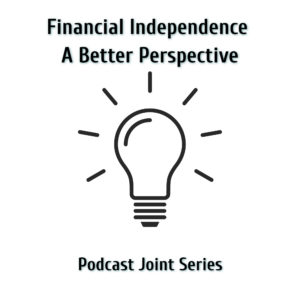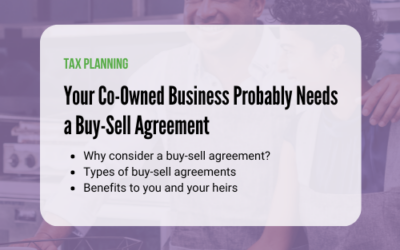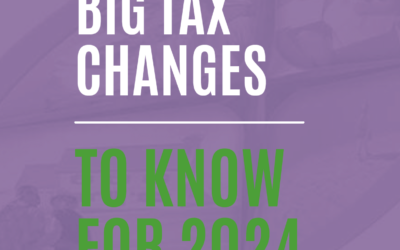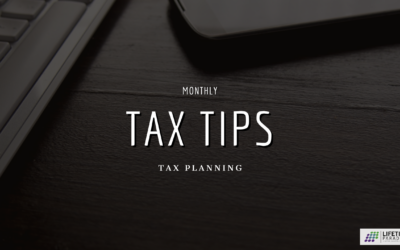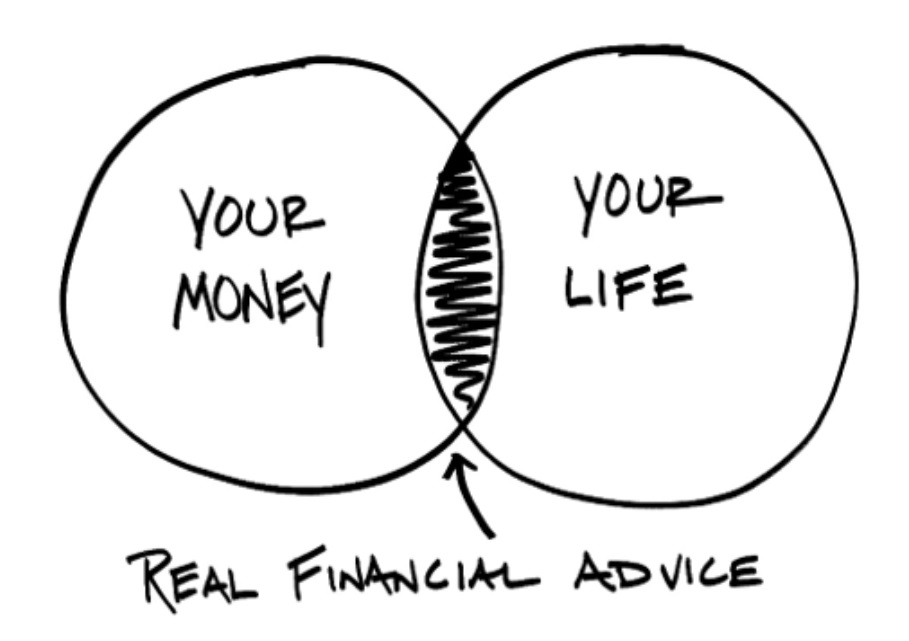Financial Independence
A Better Perspective
Podcast
Episode 1
EPISODE 1 – Cash Is King
Presented by Lance Edwards and Randy Luebke
Lance Edwards and Randy Luebke lay out the purpose of their dual podcast series, where they will cover topics such as financial independence, real estate investing strategies, and unique perspectives that many might not be aware of.
This episode addresses the economic impact of COVID-19. Lance says it’s a good time to acquire assets, while Randy explains why it’s important to have a minimum of six, nine or even 12 months of cash on hand to survive a crisis like this. They offer advice on how to budget if you don’t have cash reserves on hand.
What you’ll learn in this episode:
- Randy is a registered financial consultant and independent fiduciary investment advisor. His company specializes in working with business owners and real estate investors.
*This podcast series will cover topics such as financial independence, passive income, real estate investing and strategies and unique perspectives that Lance is confident in but that many might not be aware of. - The two address the reality of the economic impact of COVID-19, but lean towards optimism as they prepare to share their experience and advice. Randy says, “Bad stuff happens periodically. We get through it. That’s just the nature of humans and Americans in general. But certainly, there are ways to get through it that are better than others.”
- If you have a large chunk of cash reserves, “dry powder in the keg,” it’s going to be much easier to get through any downturn. Lance and Randy will address how much money you need to have and where it should be.
- Lance says that in real estate, this is shifting from a seller’s market into a buyer’s market.
- Randy discusses his unique financial planning model. The first step is to optimize everything by simplifying and consolidating “so that everything you have is doing all it can for you.” The second step is to get out of debt, and he will save a deeper conversation on that for another time. The third is cash reserves. He admits that financial advisers don’t like cash reserves because it’s storing money in places where advisors don’t make money from it. But it’s important for people to have a “stash of cash, sitting on the side, that’s safe and liquid, that you can get your hands on in a financial downturn like the current one. Because when opportunities present themselves, you can’t take advantage unless you have liquid cash available.”
- A lot of financial gurus say to have one or two months of cash on hand. Randy says you need to have a minimum of six months, nine months, maybe even a year’s worth. Lance adds that for landlords during this time, those reserves will help them ride through these storms when tenants are unable to pay rent.
- Lance says now is the time to acquire assets. “There are many ways that we acquire real estate right now,” he explains. “Some of it is cash. Many times, it’s terms and owner financing and by other unconventional means.” He adds that cash is king because of the ability to take over someone else’s problem. If you have cash, get ready to use it. You can buy real estate or distressed businesses using cash.
- Randy talks about what to do if you don’t have cash reserves. People need to look at what they’re spending their money on and find ways to stop things that aren’t immediately necessary. He starts with all the subscription services, small amounts that add up. Switching on some of the services to cheaper “family plans” is a good start. Also downsizing one’s cell phone service. The more you save on things you don’t need, the more you can put in cash reserve.
- Lance discusses the upside of learning to run businesses virtually from home. A lot less office demand is going to be an opportunity for small business buyers. On the apartment side, the demand is not going to change. He advises to not take yourself out of the market. Many don’t get involved because they think they don’t have the financial means, the cash or the credit score. When in actuality, cash is king – but it doesn’t have to be YOUR cash.
- Lance adds that the secret to real estate is the ability to raise cash and buy assets using other people’s money. Real estate is a vehicle by which you can take cash out without putting your own personal cash in it. He stresses the importance of the mindset shift.
- Randy offers some current financial facts. As of April 1, the ten-year Treasury bond closed at under 0.7%. A bond is basically about lending money to the Treasury. People are willing to lend their money to the government for less than 1% for ten years. Interest rates are at an all-time low. He hasn’t seen anything like this in his 33 years in the mortgage business, having funded a billion dollars of mortgages.
- While ten-year Treasuries are as low as they have ever been, mortgage interest rates are not. It’s because the liquidity in that market. He explains how the mortgage banking industry works: “You make a loan. You package it up. You resell it on the secondary market. Right now, that market doesn’t have money to buy these things. So the lenders are setting up their credit lines. This is why the Federal Reserve is jumping in to put some liquidity in the market, because the mortgages are still good. They just have to get them bought and sold offline so they make them again.”
- People have lost 10-30% in the stock market and want to put their money into something else that’s safer. They could put it in a ten-year Treasury bond for less than three quarters of a percent. They might be willing to partner up with you on some kind of real estate investment where they could get 5% or 10% on their money.
- Lance explains that the fundamentals of the rental demand have not gone away. Still, millennials are looking to rent. Baby boomers are downsizing and want to move into rentals. The opportunity is there for you to raise other people’s cash. The amount we pay for private money today versus the amount that was paid for private money even prior to the Great Recession is unbelievable. Prior to that, people would have killed for the kind of money that is available now. If you’re low on reserves or need cash to do a deal, don’t let that stop you. Go raise from private investors because there is no shortage of them. In fact, there are more now than ever!
- Randy mentions an experience with a developer client, who is stuck with condos he’s built because the lending machine is frozen. He’s waiting for his traditional buyer to get traditional financing. Randy advises him to get creative, suggesting an inclusive trust deed, an AITD, a land contract, etc. The ones who are going to win are going to be able to put on their creativity hat and come up with deals that work for both sides. Lance comments that he’s doing deals right now where the seller is taking back the payments with zero down, zero percent interest rate and 100% occupied building. The key is to find creative realtors.
- Someone in desperate need of cash flow might be willing in this climate to sell you an interest in their property in exchange for cash. If you understand what they need, you can craft a deal that will give you both what you want. “That’s not being a shark,” Randy emphasizes. “That’s just being smart.”
- Lance explains that when he says there’s a shift going on from a seller’s market to a buyer’s market, he’s not advocating for exploiting anybody’s bad situation. Everything must be done in an ethical way. He suggests the possibility of a joint venture – like “maybe I take over your payments for you. We’re going to use my cash to get you out of these payments. That’ll heave you with some upside.” There are many different ways to have an ethical win-win scenario.
- Lance advises landlords that if your rent’s not going to be paid, don’t sell. If you have a mortgage payment due, get in communication with your lender and tenants. Address the problem. Prices will go down and things will stabilize and they will come back. If you need reserves, go raise money from a private investor. Don’t succumb to the fact that just because you have a situation going on, you need to dump your property. The worst thing you can do is stick your head in the sand and think everything will work itself out.
- Responding to Lance’s advice to landlords, Randy advises they don’t just wait to get desperate either. “Get ahead of the game,” he says. “Get ahead of the curve. Talk to you tenants. You know, maybe they can’t pay their $5000 or whatever their full rent is, but maybe they can pay half. If their rent is $1000 and they can only afford $500, take that and take the next five hundred over the next year. There’s a way to make it work.”
- Lance re-emphasizes Randy’s earlier point that this is a good time for cutting expenses. “Think about your cash flow situation, how much money you’ve spent over the last five years on stuff you suddenly discover you don’t need,” he says. “Think of all the cash you would have right now had you not let consumerism take over.”
- Randy puts some sample numbers together to illustrate the point that at your household level, you want to have six to 12 months of whatever your household expenses are in cash reserve. If you spent $5000 a month on food, shelter, clothing, healthcare and bills, you will want to have 12 times that sitting in cash reserve accounts. That’s a year not worrying about getting a government stimulus check. With rental properties, he looks at the down payment and the cash flow. In addition to the down, he wants his buyers to have another three months rent in cash reserves for every property they buy. You’ve got to have cash reserves on hand to deal with the reality that “water heaters break and roofs need replacing even when tenants aren’t paying rent.”
- Lance reflects on the unfortunately reality that most real estate investors do not set aside reserves, but rather live month to month, which is very risky. When the repairs come up, they’re forced to dip into their credit cards, causing a whole new problem. Randy chimes in to say that having credit available is wonderful, but it’s not the same as cash in the bank. That line of credit can be frozen at any time, as it was in 2008. If you miss a payment, interest can go from a reasonable 8% to 24%. Both Lance and Randy use this discussion to go back to the original premise of this podcast segment: Cash is king.
- Lance builds on those points, adding that even when people buy with no down, they’ve got to do it in a way that leaves them cash flow. The more you put under debt, the more debt service you have to tend to monthly, which affects cash flow. You can do a deal with nothing down, but you have to do it in the context of cash flow. That has to be part of your analysis going into every property. He says, “When you’re buying a property using other people’s money, raise more than you need for the purchase and set some of that aside as working capital.”
- Randy asks his clients if they have read the legendary book “Rich Dad, Poor Dad” by Robert Kiyosaki. He summarizes: “If you can buy properties that have positive cash flow, you can buy all you want. You buy properties that have negative cash flow, you can only buy what you can afford. So get cash flow.” He then offers a “Rand-ism”: Take the gross rent minus 25% right off the top, minus the principal, interest, taxes, insurance, homeowner’s dues. When I take that 25%, I have allowed for one month’s vacancy a year. I’ve got 8% set aside for that and 7% set aside for property management. If you manage your property right, you won’t have the expenses. It’ll just add on to the return.”

Your Co-Owned Business Probably Needs a Buy-Sell Agreement
Tax PlanningBradford Tax InstituteSay you’re a co-owner of an existing business. Or you might be buying an existing...
Big Tax Changes to Know for 2024
Financial Guides2024 has brought some big tax changes with it. It’s essential to stay informed about these...
The Smart Tax Planning Newsletter March 2024
Tax PlanningIn This Issue: IRAs for Young Adults Get Up to $32,220 in Sick and Family Leave Tax Credits New Crypto Tax...

